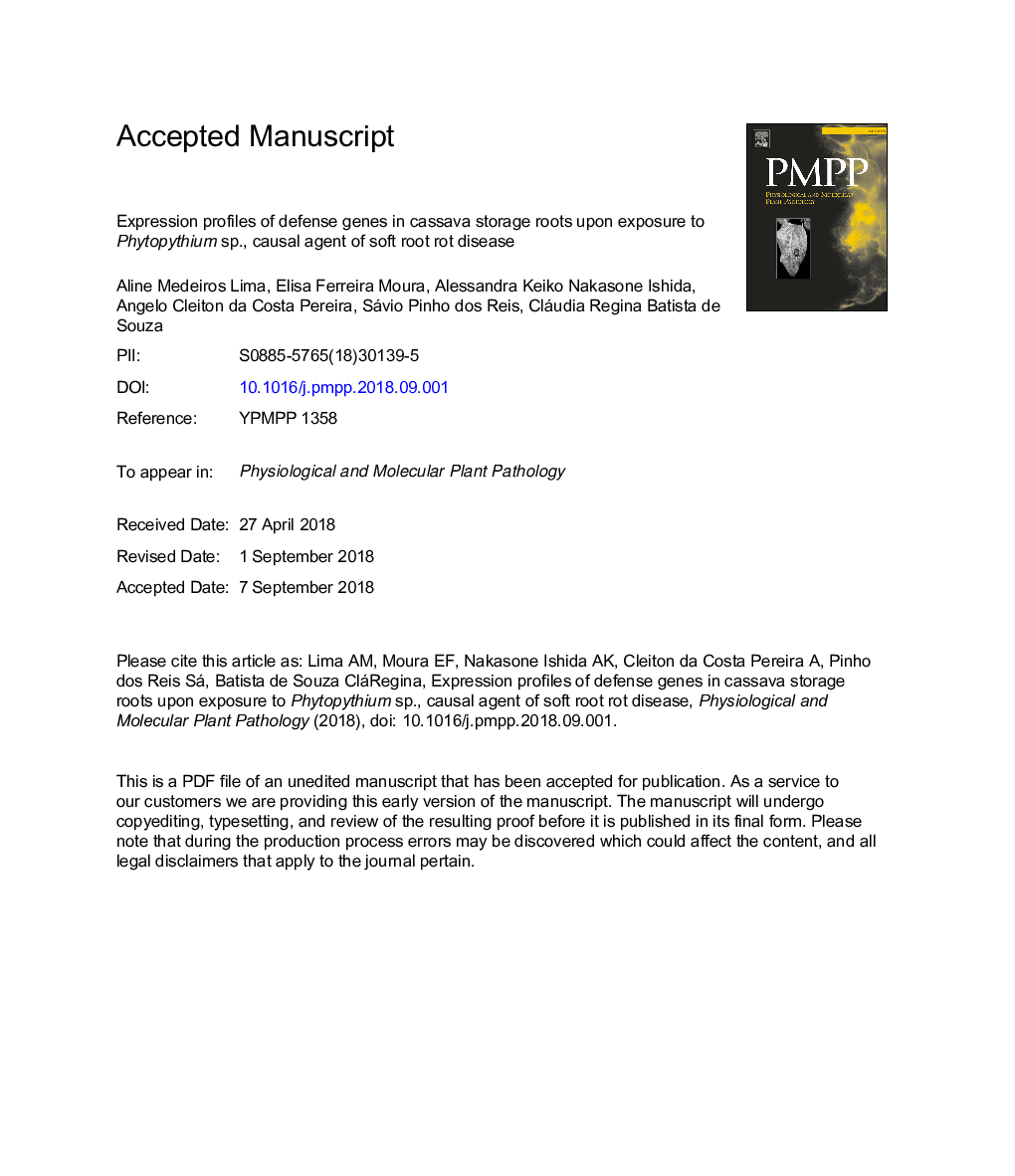| Article ID | Journal | Published Year | Pages | File Type |
|---|---|---|---|---|
| 9955402 | Physiological and Molecular Plant Pathology | 2018 | 22 Pages |
Abstract
Cassava is one of the most important crops in Africa, Asia and Latin America, where millions of people depend on its starchy storage roots as their main source of energy. In Brazil, cassava is cultivated in all regions; however, soft root rot disease has hampered its production mainly in the Amazon region. The identification of Phytopythium sp., as the causal agent of soft root rot disease in cassava plants collected in Brazil, was recently reported. Here, our main aim was to evaluate changes in expression levels of genes possibly involved in compatible cassava- Phytopythium sp. interaction. Semi-quantitative RT-PCR assays were performed to evaluate the expression levels of genes coding for proteins with known functions in plant defense, such as enzymes involved in oxidative burst and the phenylpropanoid pathway, in detached cassava storage roots inoculated and non-inoculated with pathogen. Our results showed that cassava responded to pathogen infection through up-regulation of genes coding for superoxide dismutase, phenylalanine ammonia-lyase, chalcone synthase, cysteine proteinase inhibitor and RING zinc finger protein. Furthermore, the expression pattern of the allergenic-related glutamic acid-rich protein and translationally controlled tumor protein genes in detached roots used here validated the absence of post-harvest physiological deterioration, a known endogenous disorder affecting the storage roots of cassava at 24-72â¯h after harvest. This is the first study of interaction between cassava and Phytopythium sp. at the molecular level contributing to understanding how cassava responds to pathogen infection, as well as to future strategies of molecular breeding regarding the tolerance to soft root rot disease.
Related Topics
Life Sciences
Agricultural and Biological Sciences
Plant Science
Authors
Aline Medeiros Lima, Elisa Ferreira Moura, Alessandra Keiko Nakasone Ishida, Angelo Cleiton da Costa Pereira, Sávio Pinho dos Reis, Cláudia Regina Batista de Souza,
